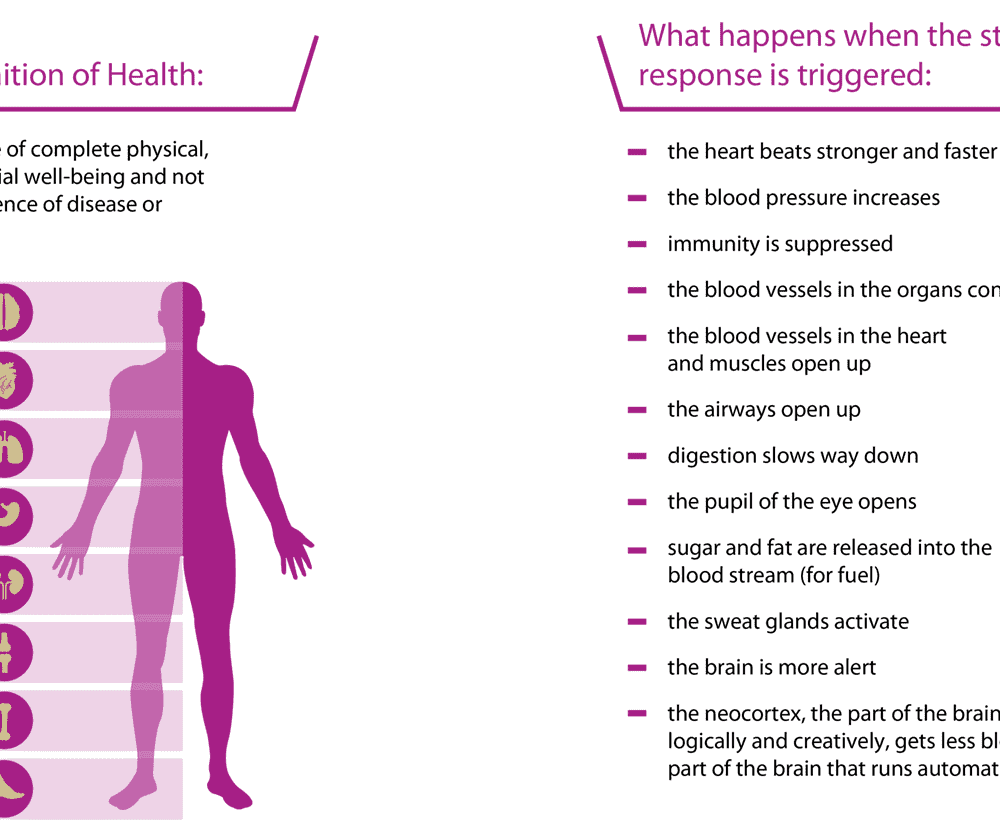Can stress be good for you?
By Chiropractor Dr. Annika Jende
When we say “stress”, we generally mean mental-emotional stress, but technically, stress is anything the body has to adapt to. There is this concept in physiology called “homoeostasis”, where everything is in perfect balance in the body. As we know, achieving perfection is a pretty elusive thing, so the body is constantly adapting, sometimes in big ways, and sometimes in small ways.
There are three different stress states:
1. Too much stress (aka overwhelm):
This one’s pretty self-explanatory. This is when we need more than we have, essentially, be it time, nutrients, rest etc.
2. Just enough stress or “eu-stress”:
This one’s fabulous! It’s when you have enough stress to keep you interested, but not enough to get on top of you. This is the best place to be for learning, or for achieving the “flow” state, where time just disappears and you get completely absorbed in your activity, for the body to stay healthy.
3. Not enough stress:
Yes, there is such a thing! This is also known as “boredom”. Boredom emotionally has to do with lack of stimulation or interest. One of today’s pitfalls in this context is interactions with screens. Screens (tv, games etc.) provide us with a spike of interest about 5 times as frequently as real life does, and hence if you spend a lot of time in front of a screen, real reality can look rather dull and boring. So please limit the time your children spend in front of screens!
The other aspect of this is that in order to learn, children need to move, and time in front of screens usually means less time outside moving. A bit of boredom is actually not a bad thing, it tends to open us up to creative pursuits and daydreaming, which is actually a crucial activity for sanity, much as nighttime dreaming is.
Physiologically lack of stress means that the body starts to break down. For example, people who hang out in zero gravity for a period of time (for as little as three months, if memory serves me right) end up with osteoporosis or brittle bones, because bones need the stress of gravity to remain strong.
Check out this article about the adrenal glands
https://spectrumchiropractic.com.au/stress-the-glands/
Check out this article on stress management
https://spectrumchiropractic.com.au/stress-management/
Can stress be good for you?
https://spectrumchiropractic.com.au/is-there-such-a-thing-as-not-enough-stress/
Image by Dr. Annika Jende

